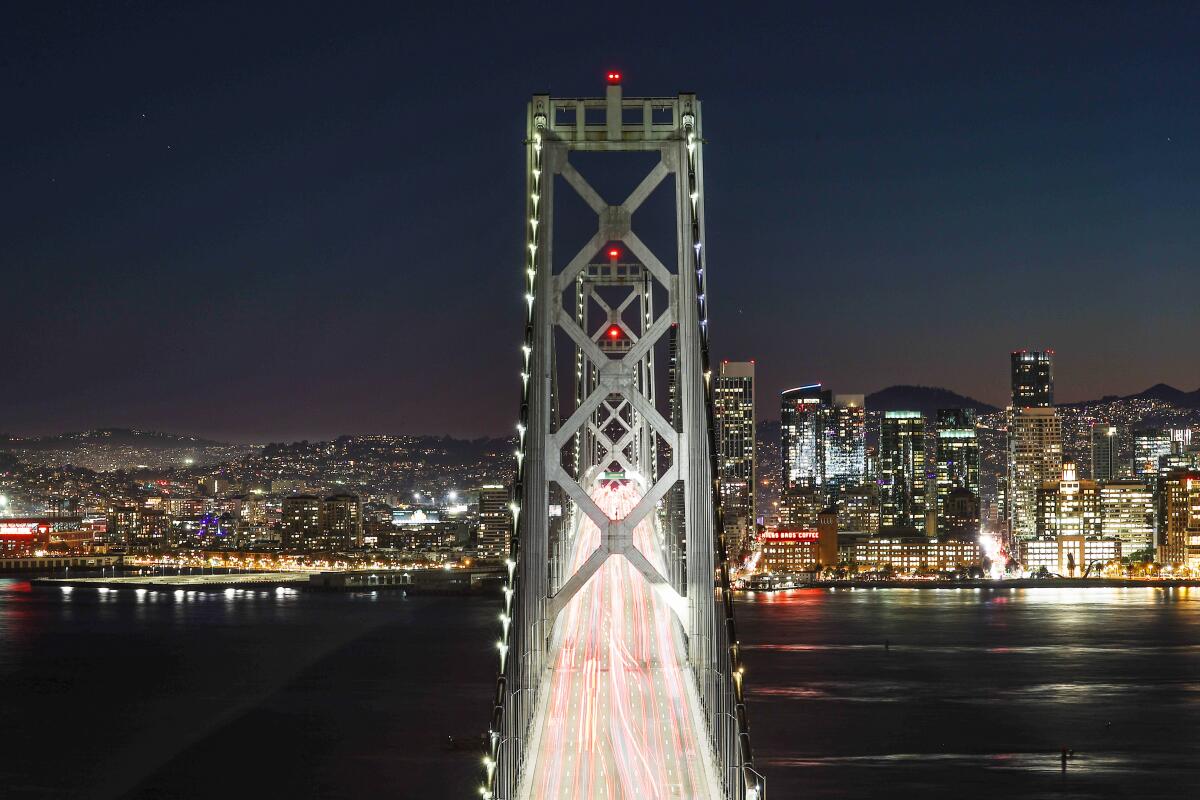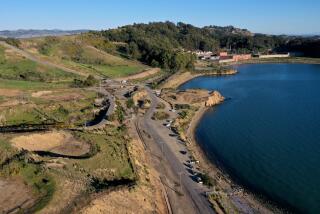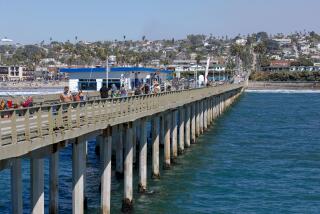The famous Bay Bridge lights may soon go dark, unless a bunch of millionaires step in

For nearly 10 years, the cascade of lights along the Bay Bridge has illuminated the San Francisco Bay. The public art installation, expected to be removed after just a few years, has become a fixture.
Now the bridge may go dark for good. That is, unless Ben Davis can persuade enough millionaires to donate $10 million to keep, expand and upgrade the display.
“We have to try,” said Davis, founder of Illuminate. “It’s important to the city, and it’s beautiful.”
The nonprofit, which launches public works of art, teamed up with New York-based light artist Leo Villareal to create “Bay Lights” in 2013. The 1.8-mile project uses 25,000 LED lights across 300 cables on the western side of the bridge.
Though the display was initially intended as a temporary installment to commemorate the bridge’s 75th anniversary, the Bay Area Toll Authority agreed in 2014 to make it a permanent installation and fund the maintenance of the lights.
The agency agreed to bear the maintenance cost of $250,000 a year, while Illuminate at the time announced that it had raised $2 million from philanthropist Tad Taube to help make the project permanent.
SFist reported in 2014 that the entire cost for the project, expected to last 10 to 12 years, was estimated to be $12 million. Davis said the actual cost was about $6 million, although the lifespan of the lights ended up being three years less than expected.
The lights have now taken a beating. The harsh environment of the bay, including strong winds, fog, salty air, lightning strikes and vehicle exhaust, has taken a toll, leaving dark patches among the lights where bulbs need replacement.
The expansion of the cables and constant vibration also make it an environment where electronics are “unwelcome,” Davis said, which means that the project will have to come down by March.
“The current set of LEDs that are there are failing at a cost that is faster than we can repair,” he said, “and they need to come down.”
But instead of giving up on the project, Davis said he was looking to raise $11 million by March 5, not to keep the lights — but to replace them with others that can endure the environment better. He’s also hoping to expand the display to both sides of the bridge.
The entire project would consist of 50,000 lights and would have an expected lifespan of about 10 years, he said.
The lights would be visible to drivers, to people flying over the bay, and to those viewing the bridge in San Francisco as well as from across the water in Oakland.
He’s already secured an Iowa-based company to make new lights specially designed for the bay’s environment.
To see the project through, however, requires $11 million, he says. He’s looking for 10 wealthy donors to contribute $1 million apiece. Another $1 million would be raised through smaller donations and crowdfunding, he said.
In the age of online viral fundraisers, why not just open up the entire financing of the project to crowdfunding?
“Anyone who has done fundraising, in particular crowdfunding, understands you might get to seven figures,” he said, “but it’s a very challenging and consuming process.”
As to concerns that the money spent on the art installation could be better spent on other projects, Davis says he stands by the effort and sees the value in public art, especially a work that reaches as many people as the Bay Bridge.
“There’s no piece of art that’s as radically accessible and touches so many lives as the ‘Bay Lights,’” he said. “There’s no charge. ... All you have to do is get close enough to see it.”
He said he believed the project was worthwhile but also a philanthropic choice. He hopes donors also “find another pocket” to fund other essential projects.
“This is a way to really touch everybody and bring the joy and beauty and power of art into everyone’s life,” he said, “and there’s a great gift in that as well.”
Davis added that although he’s eager to fund the project however possible, he’s excited about the idea of 10 benefactors helping to revive a Bay Area icon, a symbol of hope and beauty not just for the cities it connects but also the rest of the state.
“At the end of the day, what matters is to keep the work shining,” he said. “If we don’t raise the money, the project goes away.”
So far, Davis said, Matt Mullenweg, the developer of WordPress, has committed $1 million. And Davis said he’d been contacted about other possible donations.
The deadline is fast approaching, but he said he was hopeful the entire amount could be raised in time.
“There’s the option that [the lights] don’t have to be there,” Davis said. “But they’re beautiful, and they make our world a better place.”
More to Read
Sign up for Essential California
The most important California stories and recommendations in your inbox every morning.
You may occasionally receive promotional content from the Los Angeles Times.











